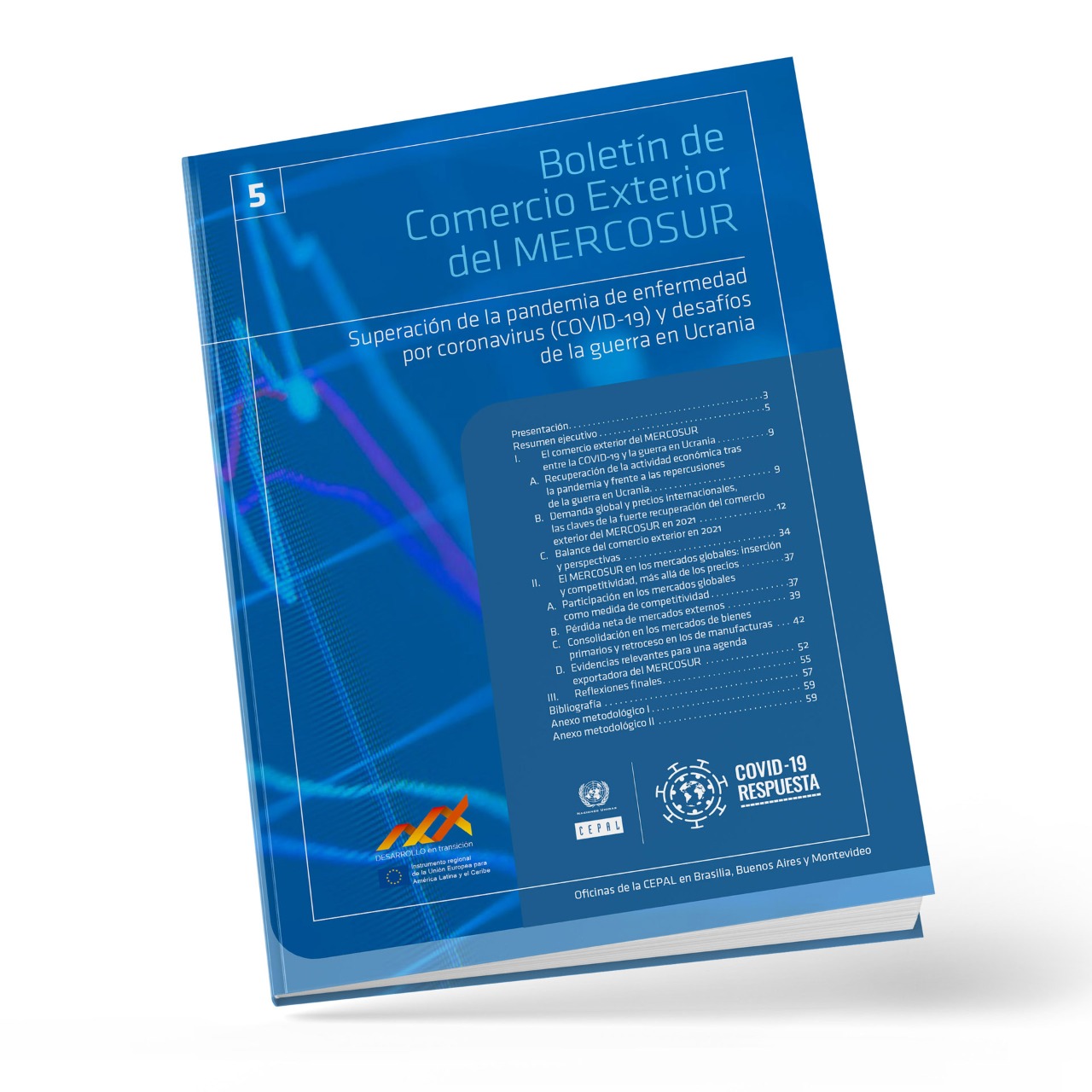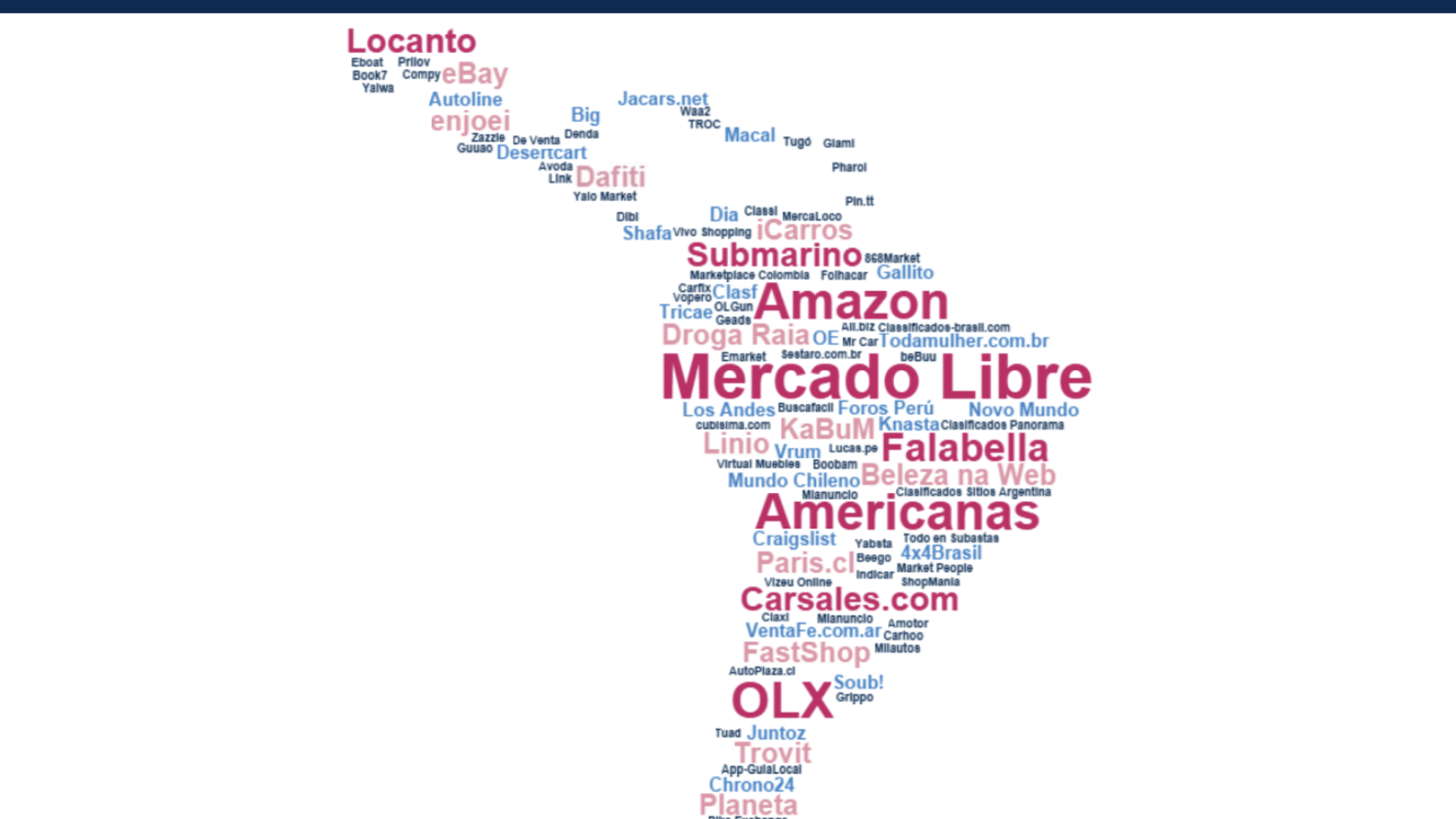Briefing note
The increase in international commodity prices played a crucial role in the recovery of exports from the Southern Common Market (MERCOSUR) in 2021, which surpassed 2019 levels. However, even with historically elevated prices in the context of the war in Ukraine, the weak performance of the volumes exported by the bloc and their increasingly limited diversification must not be overlooked, the Economic Commission for Latin America and the Caribbean (ECLAC) indicates in a new document released today.
In a new edition of the Foreign Trade Bulletin of MERCOSUR: “Overcoming the coronavirus disease (COVID-19) pandemic and challenges of the war in Ukraine” (availabe only in Spanish), ECLAC emphasizes that MERCOSUR experienced a 5.8% recovery in economic activity in 2021 (4.0% if Venezuela is included), thanks to a successful vaccination campaign that enabled it to sustain activity levels above those of the prior year, even with a striking surge in COVID-19 cases.
According to the United Nations regional organization, MERCOSUR’s exports rose by 35.6% in 2021 and surpassed their 2019 level by more than 20%, driven by the jump in commodity prices, while the volume exported returned to its pre-pandemic growth trend, which is below that of the rest of the world.
Meanwhile, the value of imports also grew significantly, exceeding 2020 levels by 40%, fueled by the recovery in economic activity in the bloc’s countries and the purchase of medical supplies to fight the pandemic, which drove up the volume of purchases from abroad by 23.2% in a year’s time (13.2% versus its pre-pandemic level). The rest of the increase is attributable to higher international prices, in particular for different types of fuel, the document indicates.
According to the report, foreign trade in services recovered at two different speeds: transportation, linked to trade in goods, and “modern” services gradually returned to their pre-pandemic levels, while tourism scarcely recuperated one-fourth of the value recorded in 2019.
The study by ECLAC confirms that in 2021, MERCOSUR sustained a total surplus of $56.8 billion dollars and that the higher international prices – accentuated once the war in Ukraine began – will have a differential impact on the bloc’s countries, with a probable improvement in the terms of trade for Brazil and Argentina, and less predictable effects for Paraguay and Uruguay.
The Commission warns that beyond this circumstantial price increase, the pace of growth of MERCOSUR’s exports is structurally weak. The bloc has lost participation in international markets, particularly in the area of manufactured goods (with an estimated loss of exports equivalent to 6.7% of GDP in 2012-2019); it has undergone growing dissolution in terms of trade and production; and it tends to be concentrated in the exportation of primary products (80% in 2021).
The primary specialization of the bloc’s countries conditions their export dynamics and their growth in the medium and long term. That is why redefining MERCOSUR’s export strategy to promote more diverse production and sales abroad of more complex goods and services (with prices that fluctuate less), is becoming increasingly necessary, ECLAC underscores.
It adds that the urgency of moving towards national productive and technological policies that dialogue with a shared regional agenda is redoubled in a context in which the most advanced economies are turning to ever more introverted and/or regionalized production strategies. The countries of MERCOSUR cannot lag behind and must strengthen the links among themselves and with the region’s other countries, the organization indicates.
MERCOSUR’s main challenge for building that shared agenda lies in finding consensus-based solutions that would enable addressing the different (and often contrasting) demands of their productive sectors and thereby make progress on mechanisms that would promote greater integration, ECLAC concludes in its report.



